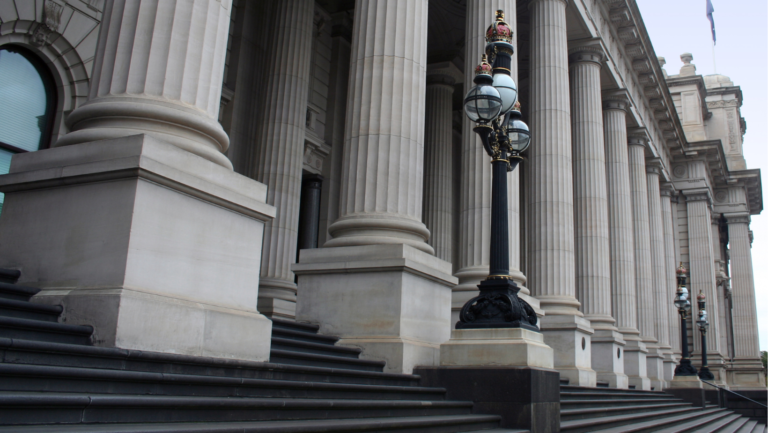02 May 2023, 13:45
Victorian Legislative Council, Melbourne
Rachel PAYNE (South-Eastern Metropolitan):
My question is for the Minister for Equality, Ms Shing, and relates to anti-vilification protections for the LGBTIQ+ community. However, let me preface this question: if it is more appropriate for the Attorney-General, I am happy to redirect.
I, like you, Minister, am alarmed by the way that bigots have been targeting our community in an increasingly organised and escalated way, and I refer to the events at Monash City Council on Wednesday as an example.
I listened to you on Joy FM on Saturday, Minister, where you said that vilification and hate speech legislation still required ‘careful consideration’. When this matter has already been the subject of a parliamentary inquiry and the government’s response accepted the inquiry’s recommendations in principle on 2 September 2021 – 20 months ago – what further consideration is required, particularly bearing in mind that other jurisdictions around Australia already have this framework in place?
Harriet Shing (Minister for Equality):
Thank you, Ms Payne, for that question and indeed for listening to me on Joy FM on the weekend. I do appreciate your direct feedback as a listener. This is perhaps a question more appropriately directed to the Attorney. So, President, I am in your hands. The Attorney has indicated she is very happy to answer the question, which may provide you with a bit more assistance.
The PRESIDENT: Ms Payne is happy for it to be directed to the Attorney.
Jaclyn SYMES (Northern Victoria – Attorney-General, Minister for Emergency Services):
I thank Ms Payne for her question. Indeed you have picked up that there is collaboration in relation to the important work in response to anti-vilification law reform in the state of Victoria. You may recall that the parliamentary inquiry did an amazing job and was really a great platform to hear from people that have been experiencing really poor behaviour in our community, and we have as a government committed to respond to that.
The first tranche of our response was the important legislation that banned the Nazi hate symbol, and we know that we have seen increasingly concerning behaviour, particularly targeted at different minority groups, in our state of Victoria.
We do want to respond in the strongest of terms not just with a legislative response but with a conversation and education piece. But in relation to the commitments that we have made, we do want to extend anti-vilification protections beyond race and religion to prevent and of course further deter vilification on other grounds, including protecting our LGBTIQ+ members of the community and other groups. We also are looking at lowering the threshold to which civil and criminal vilification will be able to be accessed through those systems.
We are in a process of consultation, with work to be undertaken by both Minister Shing but also importantly Minister Brooks in his role as multicultural minister. This is a piece of legislation and these are laws that are going to protect. We wish we did not have to do them at the outset – we really do – but we know that there is a need to improve the robustness of our system in relation to hate speech, anti-vilification laws and the like, and our commitment remains strong. It is complex, there are a lot of stakeholders that are interested and we are embarking on consultation right now. I will be able to provide you with some more documents and things so that you can speak to members of your community about how they can be involved in all of this. It is a really large piece of work.
The other complementary piece of work that we are doing is the early announcement, which we were probably going to do in conjunction with the legislation, of the banning of the Nazi salute, which as we know has been used as a horrible symbol of hate directed not just to members of our Jewish community but more broadly. That is something that is complementary to this legislation and the changes that we want to make there. A lot of work has to be done, and I do hope that in having the conversation, in having the consultations and in bringing in the community we can bring about positive change before we have to make laws that frankly we do not want to have to apply.
We do not want this behaviour to exist. I know that many members of this chamber will be interested in the development and response from the government, because I think we are all quite interested in how this will contribute to a better and more inclusive Victoria.
Rachel PAYNE:
I thank the Attorney-General for her very thorough response, and I do appreciate that there is a lot of work involved in collaborating with other stakeholders but also other ministers. But by way of supplementary, I ask: can you put a specific time frame as to when we will see this legislation in the Parliament of Victoria?
Jaclyn SYMES:
Ms Payne, I am reluctant to put a time frame on it, but it is of course a high priority of the government and for me in terms of legislation that relates to bail reform and relates to raising the age and a number of other things that are underway. I do not have a massive army of people to do all of this work, but that is why having the conversation and involving the public and interested stakeholders progresses the work and ensures that when we get to the nitty-gritty of actually drafting legislation and cabinet documents and the like we have done all of the hard work and it is just a matter of doing the processes to implement what we need to do in here. So it will be something that is a priority.
It is something that is designed to be underway now. I will have further announcements at the end of the year with the hope of having legislation within the next 18 months. That is probably a safe bet.
[ENDS]





